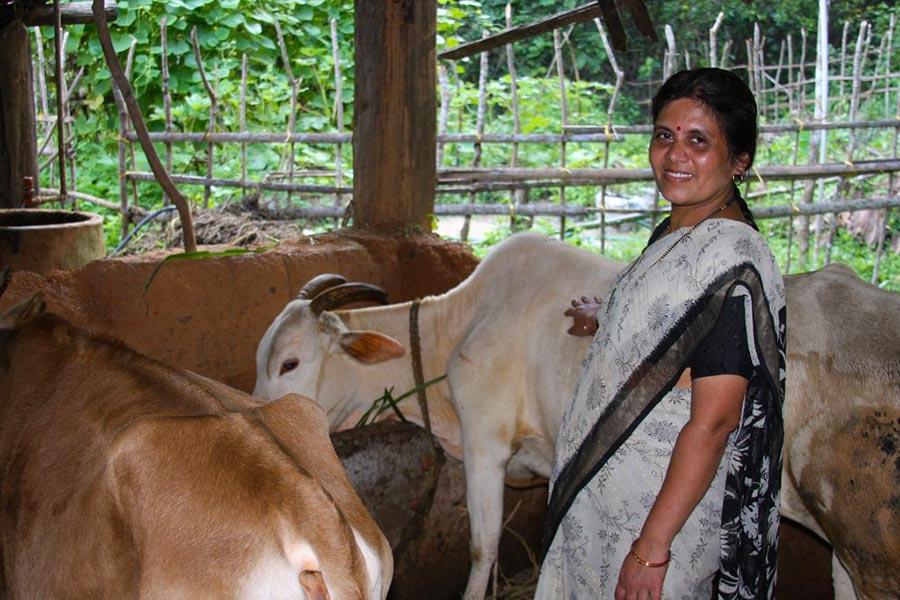Sowing Seeds, Supporting Women Farmers in India
By: Katie Douglas, WEA Intern

“Seeds have no caste, creed, religion, or gender. They are universal and secular. We nurture this sentiment strongly in our work with various communities,” says Manorama Joshi, a farmer in the Malnad region of Karnataka, India. A mother and wife, Manorama has also gone on to become the spirit of local women’s agriculture and a seed leader in her community.
Manorama is an integral member of Vanastree, a grassroots collective that works in Southern India at the intersections of gender disparity, traditional knowledge and sovereignty. Since 2013, WEA has collaborated with Vanastree to uplift women seed savers and small-scale forest home gardeners by helping them to organize meetings and festivals, collect and share knowledge on seed strengths and weaknesses, and carry out key community programs.
Through her work as a program coordinator and seed leader with Vanastree, Manorama helps to support this peaceful seed revolution to identify forest gardens as longstanding food repositories, to highlight traditional knowledge, and techniques of farming and gardening, and to empower the women who tend these places as influential agents for addressing food scarcity.

In India today, although these women are the primary advocates, and cultivators of the forests their families have called home for generations, women have little say in policies that impact the land and forests, and which often result in the environmental degradation of their natural resources. In fact, women make up around 60%-80% of all India’s agricultural labor, and remain unrecognized as farmers, who are largely considered to be men with land titles. Women on the other hand, legally own less than 10% of the lands they work to cultivate and protect. Furthermore, of India’s natural resources, where the country once had 14.8 billion acres of land forested, by 2013 this had dwindled to 8.6 billion acres due to large-scale agriculture and land grazing for cattle. Due to this widespread deforestation, sustainable management such as seed saving and traditional food knowledge remains unrecognized. And such practices will only continue to be lost whilst mainstream agricultural practices of mono-cropping and chemical pesticides exacerbate issues of climate change.
And yet there is hope as women like Manorama and organizations like Vanastree work to preserve and promote the knowledge and culture of seed savers. Over the course of our collaboration, WEA and Vanastree’s partnership visited 120 small-scale women farmers and 15 seed groups in the region, ascertaining the community’s needs, and holding a communal space for the women to gather for monthly meetings. This was a time for them to exchange seeds and share skills, or find opportunities to teach courses in Organic Kitchen Gardens to rural youth. Manorama herself was responsible for organizing the area’s Tuber Festival, which supports the protection of forest home gardens, and educates on the importance of biodiversity in the name of food security.
Through this life-giving partnership, Manorama has been able to take seed knowledge and protect it’s future continuance. Today, she has more than carried out her family’s legacy, and is now referred to as “the backbone of the initiative… seek[ing] to overcome the invisibilisation of women in agriculture.” By planting her traditional wisdom throughout the community, Manorama can ensure her seedlings will be powerful enough to support both her people and her forests.
